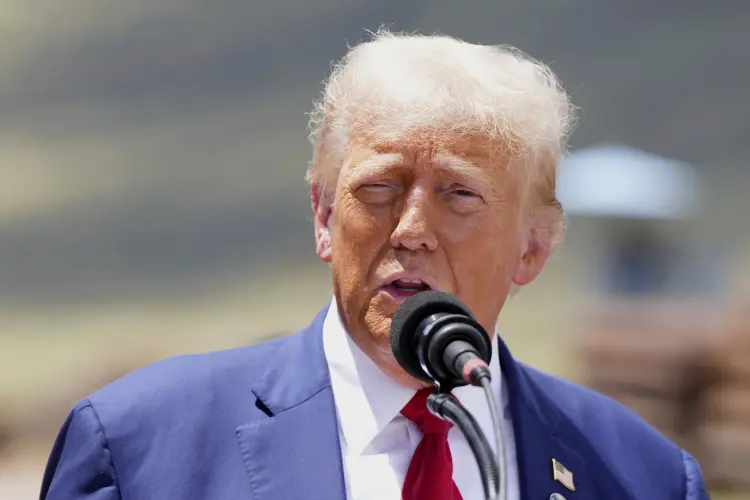Swing State Deep Dive: Michigan
With the presidential election less than seven weeks away, it is worth taking a deep dive into the seven most important states in the 2024 race: Michigan, Wisconsin, Pennsylvania, Arizona, Nevada, North Carolina, and Georgia. Known collectively as swing states, each has its own complexities, demographics, and dynamics, and so each deserves its own spotlight. To kick off the series, we zoom in on the Great Lakes State: Michigan.
With several major cities and an impressive union presence, Michigan was a solidly Democratic state for years; it was one of six “Blue Wall” states to vote Democrat in six consecutive presidential elections, from 1992 to 2012. The wall crumbled in 2016, when Trump flipped Michigan (and Wisconsin and Pennsylvania), defeating Hillary Clinton by just 0.3 points.
The state has since been the site of a Democratic resurgence. Halfway through Trump’s term, Gretchen Whitmer handily beat GOP candidate Bill Schuette in the race for governor, becoming the first Democratic governor of the state since 2011. President Joe Biden managed to flip the state blue in 2020, prevailing over Trump by 2.8 points.
Now, Vice President Kamala Harris leads Donald Trump by just 0.7 points in an increasingly tight race, according to the RCP Average. There have been just three polls in September, and they highlight just how much of a toss-up Michigan truly is: Insider Advantage has Trump up 1, CBS News places Harris up 1, and MIRS/MNS calls the race a tie.
“I’m optimistic but I’m sober,” Whitmer said in a recent appearance on MSNBC. “Elections are always close here. We cannot make any assumptions. We take no vote or no voter for granted.”
Michigan was on Tuesday the site of former President Donald Trump’s first campaign event since the Secret Service opened fire Sunday on a suspected gunman hiding in the bushes at Trump’s Florida golf course, an event law enforcement is investigating as the second assassination attempt on Trump in two months. The former president mentioned a recent call with Harris about the violence as he sat down for a town hall with his former White House press secretary and current Arkansas Gov. Sarah Huckabee Sanders.
“A little while ago, I got a very nice call from Kamala,” he said. “It was very nice, it was very nice, and we appreciate that, but we have to take back our country. We have to win. We’re going to win, and we’re going to Make America Great Again.”
Niceties may have been exchanged between the candidates, but Trump made it clear in his comments to Michigan voters that his game face is as fierce as ever. He emphasized the “tragedy” that would befall Michigan and the country if he were to lose the election. Trump focused his message on one of Michigan’s most important voting blocs: union workers.
Trump went so far as to say there would be “zero car jobs, manufacturing jobs,” if Harris were to win in November. He suggested his proposed tariffs would boost the declining auto industry, arguing foreign manufacturers will be forced to build plants in America under his vision.
“We are going to bring so many auto plants into our country,” Trump said. “You are going to be as big or bigger than you were 50 years ago, because they won’t be able – if they’re not willing to build a plant, we don’t want their product.”
Harris, for her part, is attempting to emphasize her role in “the most pro-union administration in history.” During her most recent visit to Michigan, the vice president spoke with labor union leaders and workers in Detroit. She touted her record of putting workers first and showed her support for unions throughout the speech.
Union workers are one of two key demographics in Michigan. The other? Arab Americans.
It was almost a year ago that Hamas terrorists murdered more than 1,200 Israeli citizens and kidnapped 240 others. Since then, Israel’s military response has resulted in the deaths of 42,000 Palestinians, according to Palestinian health officials. The conflict has become incredibly divisive, and American support of the Israeli military has prompted thousands of protests over the course of several months.
One of the ways many Americans voiced their support for Palestine was by voting “uncommitted” in the Democratic primaries. No movement was so successful as Michigan’s, home to America’s largest population of Arab Americans. Over 100,000 people cast a protest ballot in Michigan, and though Democrats now have a new candidate, they fear the issue could still cost Harris the election come November.
Harris has been more vocal than Biden ever was in her criticism of Israel’s military action in Gaza, but she remains supportive of Israel’s “right to defend itself.” Republicans are betting that dismay with the Biden-Harris administration’s continued support of Israel will work to their advantage. Rumors are swirling that right-leaning PACs are even targeting ads at Arab Americans in Michigan that emphasize Democratic support of Israel, as well as the Jewish heritage of Harris’ husband, second gentleman Doug Emhoff.
There is one final factor to consider when it comes to Michigan: the Senate. Cook Political Report rates the contest for Michigan’s open Senate seat as a “toss-up.” Democratic Rep. Elissa Slotkin, a former CIA analyst, is facing off against mainstream Republican Mike Rogers. Slotkin leads in the RCP Average by 5 points. The race for Senate may affect the race for president in a toss-up state like Michigan.
Many Democrats feel confident they can win Michigan, and their “Blue Wall” strategy hinges on victory there. Yet numbers show a race that “looks a lot like 2016” in terms of how tight it is in the polls. On Election Day eight years ago, Michigan’s 15 electoral votes went winner-takes-all to Trump as he won by a razor-thin margin of 10,000 votes. The country can expect a similar nail-biter come November.
2024 State Races
Get caught up on the most important polling for the most consequential races of 2024.

